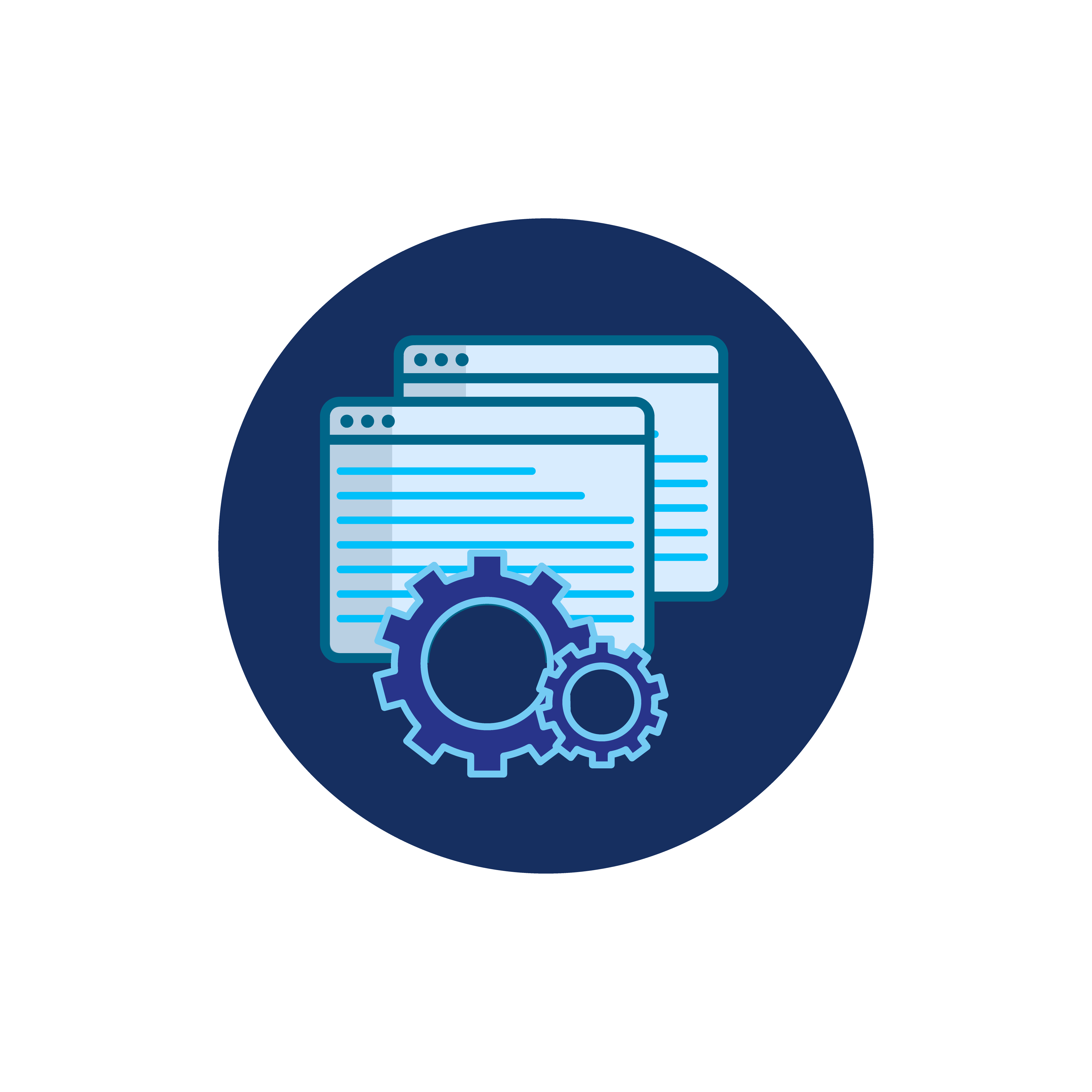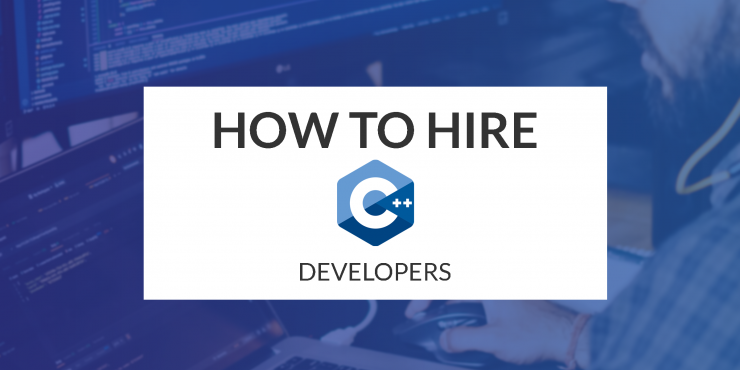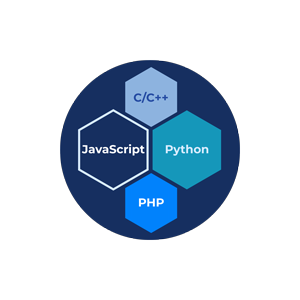My business partners and I have run software development companies and hired hundreds of different types of programmers over the past 20 years. Along the way, we’ve learned a thing or two about finding C++ developers.
Today we’ll share our tips on what to look for in a C++ developer and where to find the best talent.
Best for Hiring Freelancers
Table of Contents
We offer this website completely free to our visitors. To help pay the bills, we’ll often (but not always) set up affiliate relationships with the top providers after selecting our favorites. However, we do our best not to let this impact our choices. There are plenty of high-paying companies we’ve turned down because we didn’t like their product.
An added benefit of our relationships is that we always try to negotiate exclusive discounts for our visitors.
What is C++ Used For?
C++ is a powerful general-purpose programming language. It can be used to develop operating systems, ethical hacking, browsers, games, and so on. C++ supports different ways of programming like procedural, object-oriented, functional, and so on.
Here are some common uses of C++ Programming Language:
Operating Systems
All major operating systems have some parts which are programmed in C++. This includes Microsoft Windows or Mac OSX or Linux. C++ is the foundation of many popular operating systems because it is strongly typed and a quick programming language.
Games
As one of the fastest programming languages, C++ is often used in the gaming development community. C++ can provide procedural programming for functions that require a lot of CPU. It is also great at manipulating hardware resources. Both critical functions for modern games.
Browsers
The rendering engines behind a number of web browsers are programmed in C++ because of the speed and performance.
Libraries
The central programming language behind many high-level libraries is powered by C++. Several Machine Learning libraries use C++ in the backend because of its speed.
Graphics
C++ is used in many all graphics applications that require fast rendering, image processing, real-time physics, and mobile sensors.
Banking Apps
Infosys Finacle, a very popular used banking system uses C++ as the backend programming language. Banking apps need to process millions of transactions on a daily basis and require high concurrency and low latency support. C++ is perfect for these types of applications.
Cloud/Distributed Systems
Cloud storage systems use scalable file-systems that work close to the hardware. That’s why C++ becomes a preferred choice for Cloud systems.
Embedded Systems
Embedded systems such as medical machines and smart devices use C++ as the primary programming language.
Compilers
Compilers of various programming languages use C++ as the backend programming language.
What to Look for When Hiring a C++ Developer
When hiring a C++ programmer, there are a few things you have to consider including experience, rates, and the type of work arrangement. It also depends on the type of project you have and what skills you need to complete it.
C++ Required Skills
Here are some of the basic skills that a C++ Developer is expected to have:
- C++ library, algorithms, and containers.
- Quality and Performance metrics.
- Memory management, dynamic polymorphism, and other C++ templates.
- C++ standards, real-time environments, low-level primitives, and library functions.
C++ Experience
C++ coders should have some experience with the following:
- The C++ Standard Template Library (STL).
- Object-oriented programming (OOP), operating systems, programming environments, databases, compilers, and more come as an added advantage.
- Pointer arithmetic and what constitutes undefined behavior.
- Debugging tools such as Address/Memory/UndefinedBehavior Sanitizer, Valgrind, debuggers (e.g. GDB), and static code analysis tools.
- C tools and the Boost and Qt libraries.
- Enterprise, commercial, and open-source projects.
How to Write a C++ Job Description
Crafting the perfect C++ job description is critical to ensure that you get in front of the right developers. It's also important to ensure that you set the proper expectations up-front to streamline the vetting process, saving everyone time and money.
C++ Developer Job Description Template
Company Introduction
Use this section to write 2-3 sentences about your company. Make sure to provide information about the company culture and benefits. This would be a good section to link to your company website. The best candidates will do some advanced research.
Job Description
We are looking for a C++ developer responsible for building applications that may range from desktop applications to native mobile applications and embedded systems. Your primary responsibility will be to design and develop these applications, and to work with the rest of the development team working on different layers of the infrastructure.
Responsibilities
- Design, build and maintain efficient, reusable, and reliable C++ code
- Implement performance and quality modules
- Identify bottlenecks and bugs, and devise solutions to these problems
- Help maintain code quality, organization, and automatization
- Add other responsibilities here that are important for the project/job
Skills
- Strong proficiency in C++, with working knowledge of the language specification
- Thorough knowledge of the standard library, STL containers, and algorithms
- Specify any platform(s) that you want the developer to have a strong grasp of
- Good understanding of memory management in non-garbage collected environments
- Understanding of dynamic polymorphism and C++ specific notions, such as friend classes
- Familiarity with templating in C++
- Familiarity with system call wrapper library functions
- Knowledge of writing native modules for high-level languages such as Node.js, Python, Go, etc. {{if required}}
- Knowledge of component data sheets and specifications
- Implementation of automated testing platforms and unit tests
- Proficient understanding of code versioning tools
- Familiarity with continuous integration
- Specify other frameworks, libraries, or any other technology relevant to your project/job
- Education level or certification requirements
C++ Interview questions
When looking to hire a C++ developer, consider asking some of the following interview questions:
- What are the differences between C and C++?
- What are the differences between references and pointers?
- What are virtual functions and can you write an example?
- Is there a difference between class and struct?
- Is it possible to have a recursive inline function?
- What are VTABLE and VPTR?
- What are the major differences between Java and C++?
- What are C++ access specifiers?
- What is inheritance?
- Explain the volatile and mutable keywords.
- How can a C function be called in a C++ program?
Freelance C++ Rates
The average salary for a C++ developer is $107,515 per year in the United States. When hiring a C++ freelancer, you can expect to pay $63.18 on average per hour. C++ freelancer rates can range from $25-$150 per hour depending on the developer's experience, where they are located, their availability, and other programming languages required.
Check out our detailed pricing guide for more freelance software developer rates.
Where to Hire a C++ Developer – Top Websites
Where to find C++ developers will ultimately depend on a few factors. Consider product duration, developer experience, cost, and how much time you're willing to put into the hiring process.
Here are our top 2 favorite places to find C++ developers.
Upstack


Best for the top programming talent
Upstack aims to elevate remote tech teams worldwide through dedicated freelance talent. They look for the best freelance talent by sourcing their developers from all over the world.
They deploy an 8 point hiring process to ensure their site users have access to the best candidates with top-notch developing skills, communication, and personalities. They offer talent in a diverse set of fields including Java, Python, iOS, and PHP.
They’ve worked for big-name brands like Microsoft and Lego. However, Upstack has a diverse talent pool that’s highly scalable depending on the size and scope of your business.
Visit UpstackRead our Upstack Review.
Fiverr


Best for small projects and gigs
As one of the largest freelancing job boards on the web, Fiverr is a proven platform for connecting with prospective freelancers. The site aims to streamline the process of connecting developers with clients in a way that’s efficient for both sides.
You can contact a developer by selecting their profile if you think you’ve found a good fit. Once the terms for a project has been finalized, clients pay the developer upfront. You have about three days to read over the finished product and decide whether to accept a project submission or reject it to get a refund.
Clients look through the site’s list of freelance developers by using its robust filter tools to find the right fit. You can filter developers based on their price range, body of work, and much more.
Fiverr is great for finding developers with a specific niche, as the site has categories for practically any type of development service. For example, if you click on the mobile application development link, it’ll let you sift through candidates based on even more specific guidelines, such as custom app development or web-to-app conversions.
Visit FiverrIf you still want more ideas, here’s a full list of the best freelance websites for developers.
Developer Hiring Guides
If you are looking for other types of technical talent, we’ve put together hiring guides for these technologies as well.




- Express
- Django
- Ruby on Rails
- Laravel
- CakePHP
- ASP.NET
- Spring Boot
- Flask
- Phoenix


- Unity
- Salesforce
- iOS / Android
FAQs
Where can I find a C++ developer?
There are many places where you can find and hire a C++ developer online. If you're looking for a full-time developer, you can try popular job boards like Indeed and LinkedIn. For the best freelancers, consider using a remote hiring platform focused on placing programmers like Upstack or Toptal. You can also find C++ developers on general freelancing marketplaces like Upwork and Fiverr.
How much does it cost to hire a C++ developer?
The average salary for a C++ developer is $107,515 per year in the United States. When hiring a C++ freelancer, you can expect to pay $63.18 on average per hour. C++ freelancer rates can range from $25-$150 per hour depending on the developer's experience, where they are located, their availability, and other programming languages required.
What are the most important skills to look for in a C++ developer?
C++ is a relatively difficult coding language. At a bare minimum, you want to find a developer that has a demonstrated ability to basic object-oriented programming, algorithms, and data structures.
What does a C++ developer do?
To put it simply, a C++ developer designs and develops software using the C++ language. In addition to programming, continued development, and optimization, their tasks also include the maintenance and debugging of these software systems.


























